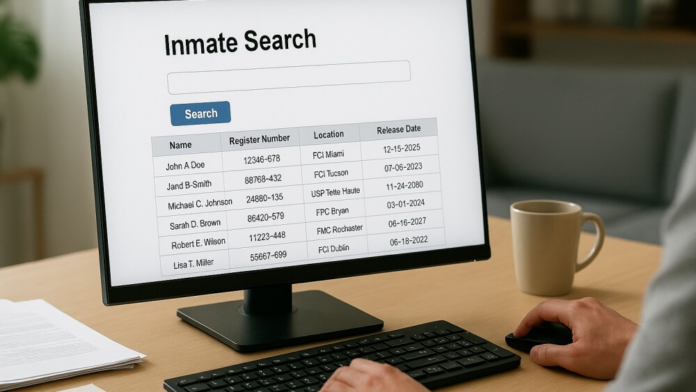Maintaining connections with family and friends is essential for emotional well-being, even when someone is incarcerated. However, locating an incarcerated loved one can be challenging, especially when you are unsure of the exact facility or the details of their custody. This is where an inmate finder becomes an invaluable tool, helping families and friends reconnect and stay in touch with those behind bars.
Understanding the Role of an Inmate Finder
An inmate finder is an online tool or service that allows users to locate individuals in correctional facilities. It collects information from official sources such as state and federal prison databases, county jails, and detention centers, making it easier to search for someone using their full name, date of birth, or other identifying details. By providing accurate and up-to-date information, an inmate finder saves families and friends time and reduces the stress of trying to track down a loved one on their own.
Reducing Stress and Uncertainty
When a family member or friend goes missing or is incarcerated unexpectedly, it can create a great deal of anxiety. Not knowing their location or status intensifies these feelings, making it difficult to plan visits or maintain contact. Using an inmate finder immediately reduces this uncertainty. By quickly locating the facility where a loved one is held, people can feel more in control of the situation and start taking steps to reconnect. This peace of mind is particularly important during emotionally stressful times.
Facilitating Communication
Once an incarcerated individual is located, maintaining consistent communication becomes possible. Many correctional facilities allow phone calls, letters, and even video visits, but the rules vary depending on the institution. An inmate finder provides the facility’s information and can guide families on how to proceed with communication. Knowing exactly where their loved one is held allows people to understand visitation schedules, mailing procedures, and contact policies, which is crucial for keeping the bond strong.
Strengthening Family Relationships
Family support plays a significant role in an incarcerated person’s emotional and social well-being. Studies have shown that inmates who maintain strong relationships with family members are less likely to engage in negative behavior and more likely to successfully reintegrate into society after release. By using an inmate finder, families can stay connected through regular visits, calls, and letters. This consistent contact helps maintain trust, love, and emotional support, which benefits both the incarcerated individual and their loved ones.
Supporting Legal and Personal Needs
In addition to helping with emotional connections, an inmate finder can assist in addressing legal matters. Families and friends may need to send legal documents, coordinate with attorneys, or monitor case updates. Knowing the exact location and status of an inmate ensures that important paperwork reaches the right facility without unnecessary delays. Moreover, understanding an inmate’s location helps people manage practical needs, such as arranging transportation for visits or preparing for long-term planning.
Ensuring Safety and Accuracy
One of the key advantages of using an inmate finder is the reliability of the information it provides. Misinformation can lead to wasted time, frustration, and even potential safety concerns. Trusted inmate finder tools gather data from official correctional records, ensuring that users can rely on accurate and current information. This accuracy is especially important when planning visits, sending mail, or supporting a loved one’s rehabilitation process.
Conclusion
Reconnecting with a loved one who is behind bars can feel overwhelming, but modern tools like an inmate finder make the process much easier. From reducing stress and uncertainty to facilitating communication and supporting legal needs, an inmate finder plays a vital role in helping families maintain connections and offer emotional support. By using this tool responsibly, people can strengthen relationships, provide encouragement, and ensure their loved ones feel remembered and valued, even while incarcerated.










